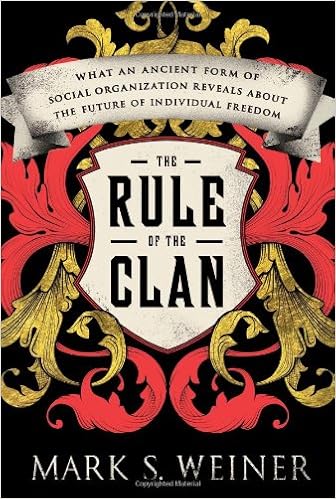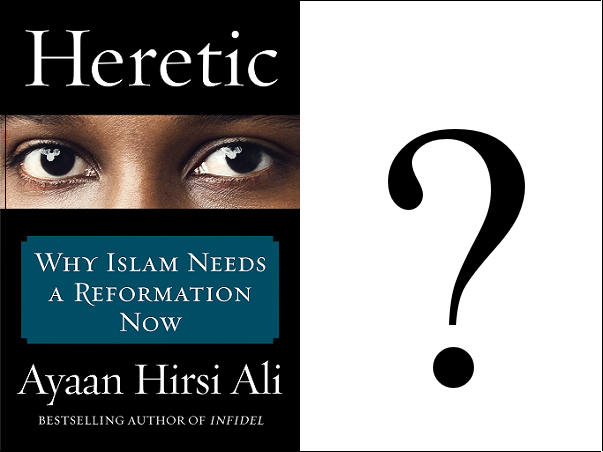BOOK REVIEW: The COIN of the Islamic Realm by Furnish
Sunday, November 8th, 2020[mark safranski / zen ]

The Coin of the Islamic Realm by Tim Furnish
Facing off with China is all the fashion in military, foreign policy and strategy circles these days but the challenges of insurgency will always be with us. This includes the Islamic world as old conflicts from the war on terrorism continue to burn despite the attention span of the American public and policymakers moving on even though or troops often have not. Dr. Tim Furnish, in a new book, forcefully reminds us that many of America’s counterinsurgency and counterterrorism problems in the greater Mideast are neither new nor particularly American in nature. Indeed, in The Coin of the Islamic Realm: Insurgencies & the Ottoman Empire, 1416-1916 we learn that America or its Saudi allies in Yemen tread down very well worn paths that Ottoman sultans, even invested as they were with the supreme religious authority of the Caliphate, navigated only with difficulty.

Furnish, a specialist in the eschatological history of Islamic sects and Mahdist movements, history professor and former consultant to US Special Operations Command is well qualified to parse the tea leaves of historical Arab insurgencies and religious movements that resisted Ottoman imperial rule. Western analysts coming from perspectives of counterterrorism, military history, IR, colonial history typically underrate or ignore the religious dimensions driving irregular conflict and as Furnish demonstrates, while not always primary, (usually) Arab religious disputes with their Ottoman overlords tended to shape the military and political responses of both insurgent and counterinsurgent for nearly half a millennia, echoes of which we still see today in ISIS or the Houthi rebellion.
In The Coin of the Islamic Realm Furnish begins by briefly reviewing virtues and flaws of policy advice given in recent popular natsec pundit books on Islamic insurgency and terrorism as well as pondering the paucity of COIN studies on Turkish military campaigns in general but also specifically in English; a strange lacunae for western military analysts seeking to understand groups like AQ and ISIS given that the Ottoman state faced many similar rebellious or dissident movements in the same regions. Furnish argues that “Islam is key to understanding both the non-state challengers to Ottoman rule, and the Empire’s state responses” which will offer better template for “lessons learned” for American policy makers faced with Islamic or Islamist orientated terrorists and guerillas.
Furnish takes a look at a spectrum of discrete groups that struggled against the Ottoman empire – the Celalis, Kadizadelis, Druze, Zaydis, Sa’udi Wahhabis and Sudanese Mahdists and then draws distinctions between Ottoman counterinsurgency policies that produced, wins, losses and draws and the disastrous experiences of the earlier Almoravids against the Almohads in the medieval era Mahgreb. Furnish uses two lenses in his approach to analyzing the performance of the Imperial Ottoman state and their insurgent enemies: a constructivist, contextual view that incorporates the social, cultural and religious factors of the time and the traditional yardsticks of modern counterinsurgency strategy and tactics. How well did the Ottomans wage kinetic operations, win hearts and minds, engage in state-building and employ proxy forces?
As with modern counterinsurgency wars, the Ottoman record was mixed though on balance more successful than that of France in the 20th century or America in the 21st. The Ottomans being a polyglot, albeit, Muslim imperial state were regarded by most of their Arab and ethnic minority subjects as foreigners so therefore the religious authority of the Caliphate was a particularly sensitive point for the Sublime Porte. Furnish illustrates how the Ottomans could wage brutal military campaigns against heretical Fiver Zaydis or heterodox Druze, but didn’t particularly view either of these challenges as threats to the Sultan’s authority. Neither the Zaydi imams nor the Druze chieftains could mount an effective ideological challenge to the Sultan’s position as Caliph over a mostly Sunni Islamic world. More dangerous spiritually and seriously viewed were the Wahhabi and Sudanese Mahdist theological attacks on the legitimacy of the Ottoman Caliphate. There were no deals for the Abd Allah bin Sa’ud, his first Sa’udi State and Wahhabist revolt was crushed by the Ottomans for his temerity and he was dragged in chains to Istanbul and publicly beheaded. As a Sufi influenced Hanafi aligned Caliphate, as Furnish describes, the Ottoman Imperial State would brook no religious challenges from either proto-Salafists or messianic Mahdists and their harsh and uncompromising interpretations of Islam.
 While Furnish is in particular an expert in apocalyptic Mahdist movements (see his books , Holiest Wars: Islamic Mahdis, their Jihads and Osama bin Laden and Ten Years Captivation With the Mahdi’s Camps) he does not neglect the aspects of Ottoman military campaigns against self-proclaimed Mahdi, Muhammed Ahmad. The fact is that the Sudanese Mahdist state did not arise simply on cult like religious proclamations but the tactical prowess of the Mahdi and his commanders who repeatedly outfought a series of Ottoman-Egyptian armies with Turkish, Egyptian and British commanders included the heroic but ill-fated Charles “Chinese” Gordon. While it is true that the head of the Mahdi was eventually dug up and carried away in Lord Kitchener’s kerosene can, Furnish uses the experience of the Sudanese to explain how a Mahdist movement can make the leap from movement to military insurgency to Maddiya, or Mahdist state that ruled much of the Anglo-Egyptian Sudan for 17 years. That the Almohads, who were even more successful than the Sudanese in that they replaced the Almoravid regime entirely also began under a Berber Mahdi, Ibn Tumart , demonstrates the potential danger if Mahdist movements are permitted to gain popular traction.
While Furnish is in particular an expert in apocalyptic Mahdist movements (see his books , Holiest Wars: Islamic Mahdis, their Jihads and Osama bin Laden and Ten Years Captivation With the Mahdi’s Camps) he does not neglect the aspects of Ottoman military campaigns against self-proclaimed Mahdi, Muhammed Ahmad. The fact is that the Sudanese Mahdist state did not arise simply on cult like religious proclamations but the tactical prowess of the Mahdi and his commanders who repeatedly outfought a series of Ottoman-Egyptian armies with Turkish, Egyptian and British commanders included the heroic but ill-fated Charles “Chinese” Gordon. While it is true that the head of the Mahdi was eventually dug up and carried away in Lord Kitchener’s kerosene can, Furnish uses the experience of the Sudanese to explain how a Mahdist movement can make the leap from movement to military insurgency to Maddiya, or Mahdist state that ruled much of the Anglo-Egyptian Sudan for 17 years. That the Almohads, who were even more successful than the Sudanese in that they replaced the Almoravid regime entirely also began under a Berber Mahdi, Ibn Tumart , demonstrates the potential danger if Mahdist movements are permitted to gain popular traction.
The Ottoman campaigns in Yemen against the Zaydi highland tribes have an all too familiar ring to them, echoing both the cruel but fruitless Saudi experience today as well America’s frustrating experience in Afghanistan. Indeed it is not hard to describe Yemen as the Afghanistan of the Arabian peninsula in which the Ottomans endured centuries long on and off again quagmire. Every tool in the modern COIN toolkit was applied in Yemen by Ottoman Pashas – bribery, clear and hold, reprisals, cultivation of local factions, divide and conquer, foreign proxies – nothing could establish Yemen as a docile vilyet integrated into the empire. Yemen had to be abandoned entirely by the Ottomans for very long periods of time and the best that could usually be mustered was Zaydi Imams ruling most of the country, pledging a face saving allegiance to the Sultan while the nominal Ottoman governor was reduced to twiddling his thumbs in Sa’na. And sometimes not even that.
Furnish closes The Coin of the Islamic Realm with a summation of lessons learned from the Ottoman experience to deal with fundamentalist and apocalyptic insurgencies in the Islamic world: be willing to take the kinetic fight to the enemy, interdict outside support, deny the use of safe havens, capture or kill charismatic insurgent leaders (especially Mahdists) enlist respected Muslim religious leaders to condemn the theological distortions, errors and crimes of the terrorists or guerillas. Sound advice, but difficult to do when US policymakers want to fight limited wars with unlimited objectives in far away lands without expending political capital against enemies they seldom have the courage to describe honestly in public. Hopefully when facing the next ISIS or al Qaida they will take Furnish’s advice to heart.
The Coin of the Islamic Realm by Timothy Furnish fills an important gap in COIN literature and is particularly helpful for laymen to get a fast understanding of the theological fracture points within the Islamic world that crystallized into political upheaval and armed rebellion against central authority. I for example, learned much about Zaydi Fivers and the Ottoman Turk relationship with Sufi orders that were previously unknown to me as well as the historical nuances of Islam as practiced in the world’s last great multinational Muslim empire. What stood out from Furnish’s highly contextual take is how deeply rooted America’s policy challenges with irregular violence in the greater Middle-East are as well as how difficult it is for our politicians and generals to profit from lessons learned many times, often painfully, by others.
Strongly recommended.







